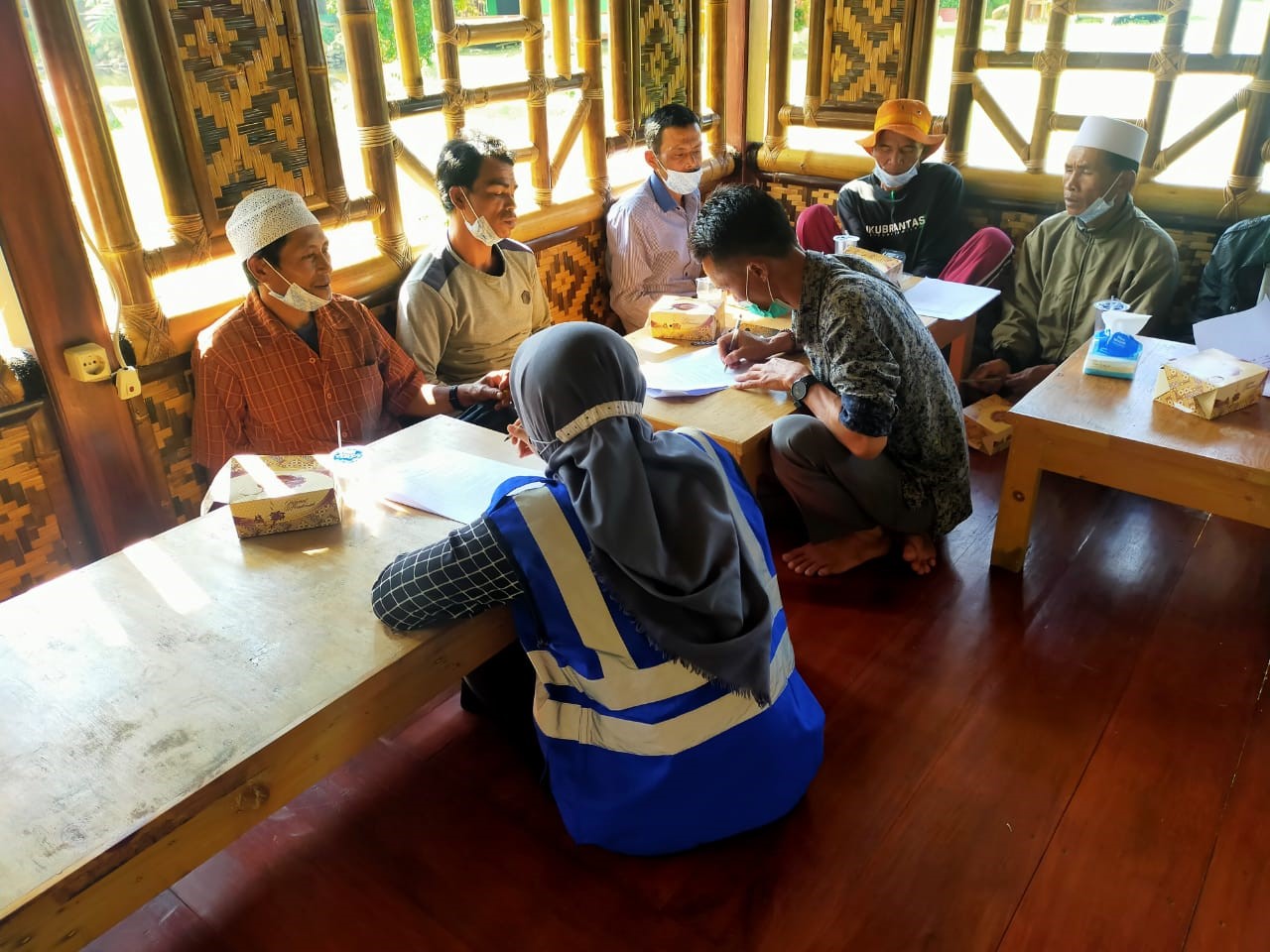
Developing Coffee Village Industry, HI Builds Village Industry Development Economic Program
16 August 2022
Indonesia is one of the countries that has the most types of coffee origin, or can be called single-origin. There are various types of Indonesian coffee origin from various regions in Sumatra, Java, Bali, Flores, to Papua. It has been proven that each type of coffee has a distinctive and unique taste. In 2018, Indonesia exported coffee amounting to USD 817 million (equivalent to 11 trillion Rupiah). This value decreased compared to the value in 2014-2017 which was always above 1 billion USD. There was even a decline of 31% in 2017. One of the factors is domestic coffee consumption which always increases by 8 percent from year to year. The most unfortunate thing is the low selling value of Indonesian coffee products which is only 2,921 USD per tons, most of which are cheap grade raw coffee beans. This indicates that Indonesian coffee must be exported with a production process that produces a much higher added value.
Sirnajaya Village in West Java Province is one of the best coffee-producing regions in Indonesia. In this area there are nearly 400 hectares of coffee plantations managed by hundreds of farmers. Human Initiative since 2020 has fostered 30 coffee farmers who have a land area of 120 hectares with a harvest potential of 1-4 tons of coffee per ha per year. Unfortunately, the capacity of the farmers in cultivating coffee plants in this village is not evenly distributed. However, the quality of the coffee is very good.
In 2020, Human Initiative runs the BID Program for coffee farmers in Sirnajaya Village. The objective of the Sirnajaya Village Coffee BID Program in the first year is to improve the skills of farmers to be able to produce quality coffee products.
The types of activities held include:
• Assistance with infrastructure for coffee cultivation for 30 farmers
• Assistance with coffee tree seeds for rejuvenation for 30 farmers
• 2 times coffee cultivation training
• 1 time coffee bean processing training
• Business coaching 3 times
Increased income from coffee harvest
After 1 year of intervention, as many as 30 farmers who were fostered were able to produce higher quality coffee. Previously, farmers harvested coffee beans by picking at random. As a result, the quality of the coffee sold is low. This has lowered the selling price of the coffee farmers. After 1 year of intervention, farmers’ behavior began to change from random picking to red picking. As many as 67% of farmers have picked red bean cherries every time they harvest. This then makes the quality of farmers’ coffee beans rise drastically to premium quality.
Prior to the program intervention, the farmers sold coffee under a bonded system. Their cherry bean coffee cost IDR 12,000 per kg. They used to process coffee using traditional methods and equipment, such as a wood growing machine and a cauldron roaster. After the program intervention, farmers managed to increase the selling price of their coffee. Their Arabica coffee is purchased at a price of IDR 55,000 per kg for green beans, IDR 150,000 per kg for roast beans, and IDR 200,000 per kg for ground coffee. Meanwhile, their Robusta coffee is priced at IDR 40,000 per kg for green beans, IDR 130,000 per kg for roast beans, and IDR 170,000,- per kg for ground coffee.
In addition, farmers in Sirnajaya Village have formed a Village-Owned Enterprise (BUMDES) whose main business is coffee. In addition, the farmers assisted by the Human Initiative formed 1 farmer group. This makes farmers manage their farms collectively, thereby reducing the opportunity for monopoly prices by middlemen and having an impact on increasing the price of coffee products.
With the intervention in the program, now the income of the beneficiaries has increased for the better. This was revealed by Maman Surahman (14/08), one of the beneficiaries told the story. That now from the coffee harvest he is able to buy stock of basic household needs for the next few months, besides that he is also able to renovate his damaged house. This is different from the previous condition. Previously, they had to work side jobs to meet daily household needs.
“Hopefully, this program can continue to have an impact on more families, because if there is an increase in the standard of living of the people, this will have a positive impact on improving the quality of education and the quality of health for families. said Yuspi, Project Manager of the Village Industry Development Program.
Data source: Internal Project Human Initiative
